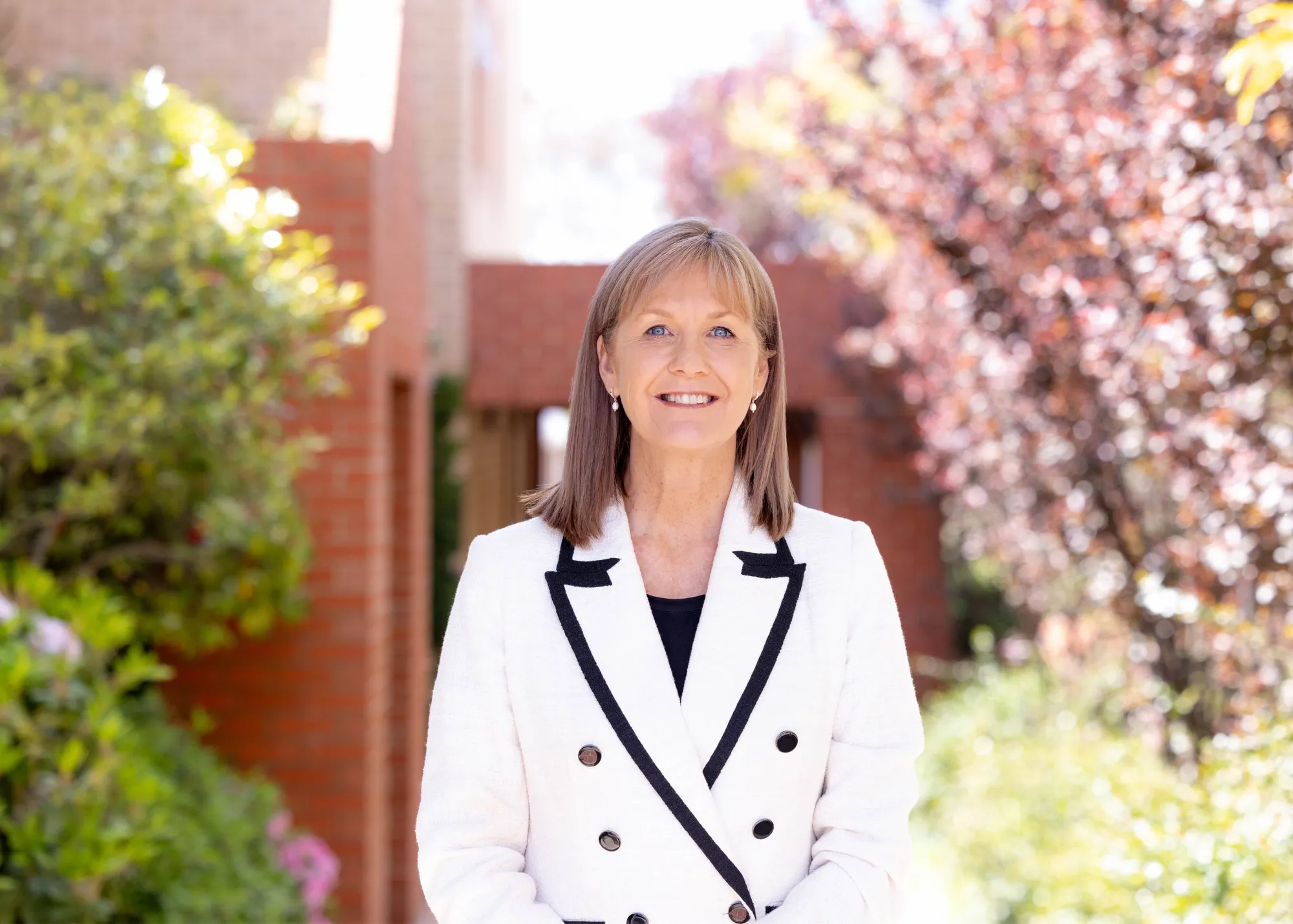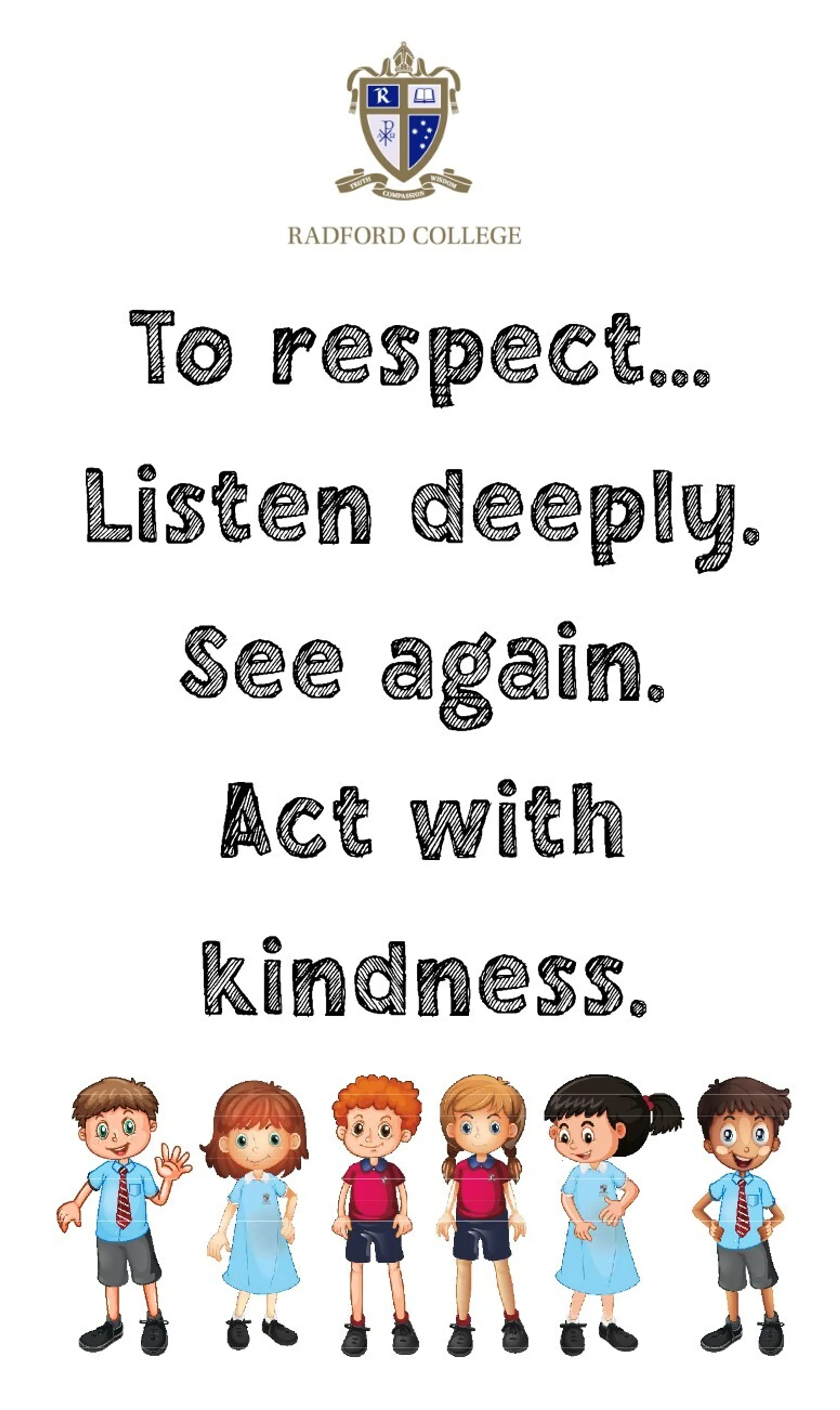The ripple effect of kindness
The ripple effect of kindness
By Ms Karen Mahar, Acting Deputy Principal, Head of Junior School

Like many schools, Radford remains committed to building and consolidating a community of well-being and nurturing a safe and kind environment for all individuals. One which promotes care, consideration, and respect for others.
Stories of bullying in schools have become all too familiar and commonplace. So much so, that it seems wise to consider whether we are becoming increasingly desensitized to examples and instances of bullying.
Please be assured that Radford College remains firm on its stance against any behaviour deemed intimidating, aggressive or demeaning of others. Behaviours identified as offensive or discriminating need to be acted on in a respectful way.
While it is acknowledged that we (students, parents, and staff) do not accept, nor tolerate bullying, it is troubling to note that the annual college MMG survey shows that bullying remains a moderate concern within our community.
The ramifications of intimidation can be long-lasting and directly impact one’s mental health, self-esteem, and overall well-being. Thus, it remains imperative to continuously educate all members of our community on recognising, preventing, and addressing bullying.
Accordingly, Radford College aims to:
- provide a safe and caring environment for all members of the school community
- minimise opportunity for and instances of bullying
- vigilantly monitor levels of bullying and take immediate appropriate action and
- regularly review and improve both our prevention and intervention strategies.
We believe that in order to ensure that our community’s response to bullying aligns with best practices, we need to maintain clear policies, effective systems, and procedures. In doing so we need to review policies that outline expectations, consequences for bullying behaviours and procedures for reporting incidents, and ensure that all policies are communicated clearly to students, staff, parents and caregivers.
Bullying is unacceptable and never to be tolerated. It is never something that can be seen as being “in jest” or “just a joke” when it offends and demeans someone. Bullying is hurtful, it damages and undermines confidence and its negative impact on someone can remain for a long time, if not, indefinitely.
That being said, an Anti-Bullying Policy, alone, is not enough. The success of any idea is in its subsequent actions and lived experience. Researched approaches that show the most promise for reducing bullying (along with other forms of aggression and conflict) are maintaining a positive school climate, and effective social and emotional learning.
Defining a school climate can be difficult, though it is possible to measure. It is the “felt sense” of being in a school, which can arise from a simple greeting, the way a problem is resolved, or how people work together. It is a school’s “heart and soul” and its “quality and character” experienced through its day-to-day functioning. Schools with a positive climate foster and cultivate healthy personal and interpersonal development.
A negative school climate is one associated with higher rates of student bullying, aggression, victimisation, and feeling unsafe.
Parents and educators have a crucial role to play in preventing and addressing bullying. Student opinions regarding the effectiveness of adult actions in response to bullying can vary. It's imperative for all of us to take proactive steps to create a school environment free from bullying.
It is widely recognised that a shift in mindsets about the importance of children and their feelings contributes to a positive climate. Children are more likely to thrive when their humanity is nurtured, and they are provided with appropriate language, strategies and values to help them understand and regulate their feelings. By fostering awareness among parents, teachers, and administrators about the multifaceted origins of bullying and adopting new approaches to address it, we can set a positive example. The kids are counting on us.
"In a world where you can be anything, be kind." – Unknown
This quote succinctly captures the essence of the impact of kindness and inclusivity. It reminds us that even small acts of kindness can have a ripple effect, making Radford a better and more inclusive place for everyone.

Nexus Well-being resources:
Secondary Wellbeing - https://nexus.radford.act.edu.au/homepage/141
Junior School Wellbeing - https://nexus.radford.act.edu.au/homepage/190
References:
https://www.aitsl.edu.au/docs/default-source/research-evidence/spotlight/bullying.pdf
